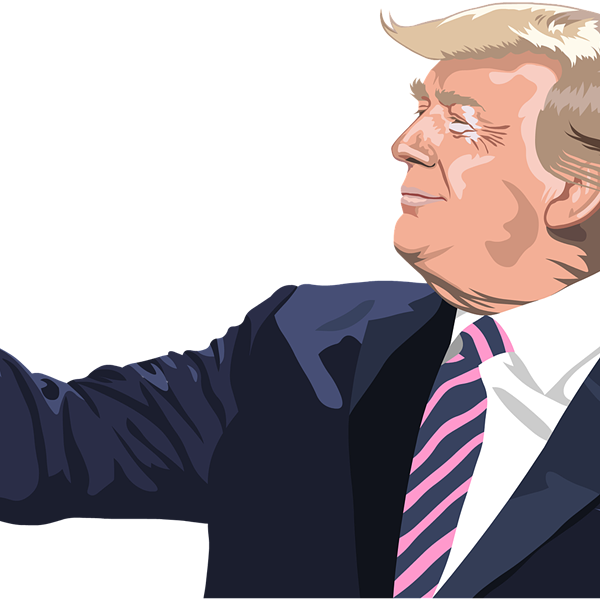“The binding tie of cohesive sentiment”
Yet, as Justice Felix Frankfurter noted—when the Supreme Court ruled in 1940 that requiring students to salute the flag and recite the Pledge was not unconstitutional—dozens of state legislatures thought the flag ceremony was a good way to instill national loyalty in a diverse school population, having them share “a common experience...designed to evoke in them appreciation of the nation’s hopes and dreams, its sufferings and sacrifices.... The ultimate foundation of a free society is the binding tie of cohesive sentiment.”
But Justice Frankfurter’s 1940 Gobitis decision was soon reversed, when Justice Robert Jackson wrote a ferociously eloquent opinion for an 8-to-1 majority that struck down the statutes that, post-Gobitis, had enforced salutation of the flag and recitation of the Pledge. This 1943 Barnette opinion, with its robust warning against the authoritarian coercion of belief, still holds as constitutional doctrine:
Compulsory unification of opinion achieves only the unanimity of the graveyard.... There is no mysticism in the American concept of the State or of the nature or origin of its authority. We set up government by consent of the governed, and the Bill of Rights denies those in power any legal opportunity to coerce that consent.... If there is any fixed star in our constitutional constellation, it is that no official, high or petty, can prescribe what shall be orthodox in politics, nationalism, religion, or other matters of opinion or force citizens to confess by word or act their faith therein.
Jackson’s magnificent, lucid words notwithstanding, Bellamy’s Pledge continued to inspire secular sanctimony. And flag worship intensified in 1954, when the Knights of Columbus persuaded President Eisenhower to add the words “under God.” Ike saw no harm in affirming that America, battling against godless Communism, was doing so “under God”—this enhanced his standing with patriotic voters. In an Ike-ish smudge of non-meaning, he added, “Our government makes no sense unless it is founded on a deeply felt religious belief—and I don’t care what it is.”
President Theodore Roosevelt had detested this kind of mush. When he authorized a new design for a $20 gold coin in 1907, he was relieved that no statute required the words “In God We Trust” to appear on them. To engrave the phrase on specie, this believing Christian said, “not only does no good but does positive harm,” weakening the very spiritual commitment it was intended to promote. Congress, however, reflexively favoring banal religiosity, made the motto mandatory on coins, and positive harm ensued.
Does the Pledge “establish” religion?
Newdow claims that the “under God” phrase in the 1954 Pledge violates the clause in the First Amendment reading “Congress shall make no law respecting an establishment of religion....” To “establish” a church is to make it a national or state church, but American law scarcely worries about that unlikelihood; rather, the courts repeatedly assess whether the government is favoring religion in publicly funded activities. (The basic worry is about favoring one church over another; secularists worry about favoring religion of any kind.) Does the 1954 Pledge do such a thing? The Elk Grove School District will have to argue that it does not “establish” religion.
Fundamentalist Protestants and conservative Catholics oppose Newdow because they want this godly Pledge affirmed as constitutional, but the truth is that they also believe it favors religion—and should. They are confident that America functions “under God,” that the Founders believed this and that we should say so out loud. Take the Roman Catholic Justice Antonin Scalia. Blithely misinterpreting two centuries of post-Enlightenment political philosophy, he claims “that government—however you want to limit that concept—derives its moral authority from God,” that this was “the consensus of Western thought until very recent times. Not just of Christian or religious thought, but of secular thought regarding the powers of the state. That consensus has been upset, I think, by the emergence of democracy.” His bizarre argument appeals to “people of faith” not to resign themselves to this deplorable “tendency of democracy to obscure the divine authority behind government” but “to combat it as effectively as possible.” Americans have already done this, he claims, “by preserving in our public life many visible reminders that—in the words of a Supreme Court opinion from the 1940s—‘we are a religious people, whose institutions presuppose a Supreme Being.’” (It was Justice William Douglas in 1952, but never mind.) Look at “In God We Trust” on our coins and in our courtrooms, he says; “one nation, under God” in our Pledge of Allegiance; “the opening of sessions of our legislatures with a prayer.”
















